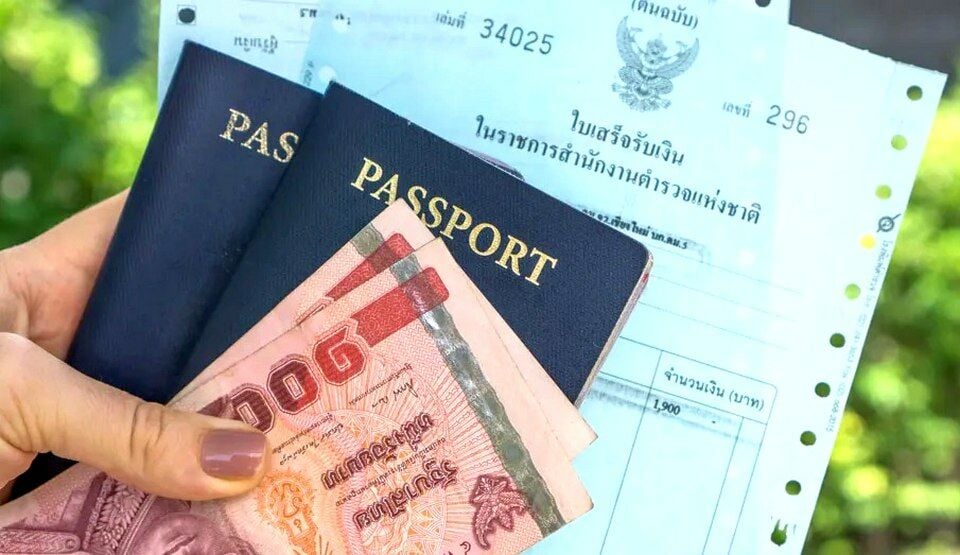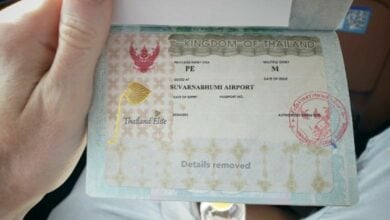When to retire in Thailand: A guide to your dream retirement

Choosing to retire in Thailand is an aspirational objective for numerous individuals, marked by a distinctive combination of cultures, serene landscapes, and a cost of living that guarantees a comfortable life. Nevertheless, deciding on the appropriate time to undertake this major life change requires thoughtful consideration.
This arrangement necessitates a notable financial investment in a Thai banking institution and comprehensive health insurance coverage among other requirements. Given these conditions, meticulous planning becomes essential, with initiation of the application process within one’s home country recommended to mitigate time constraints and reduce potential stress.
Furthermore, in the aftermath of the global pandemic, securing health insurance has transitioned from being merely advisable to compulsory for retirees seeking residence in Thailand. The variability in costs and extent of coverage underscores the need for extensive research and preparation. Those enticed by either leisurely pursuits or cultural exploration must weigh their options carefully, taking into consideration both financial stability and health security.
Assessing the cost of living for retirement in Thailand
When opting to retire in Thailand, it is imperative to comprehend the cost of living accurately. This segment delineates the principal expenses to facilitate the planning of your retirement budget efficiently.
Housing and utility expenses
Diving into the hunt for the perfect home is such an exciting adventure, especially when you’re dreaming of retiring in Thailand! Just a heads-up, the cost of housing can swing depending on your dream location, what kind of home makes your heart sing, and how much pizzazz you want. If you’ve got your sights set on vibrant places like Bangkok or the picturesque beaches of Phuket, snagging a cute one-bedroom apartment smack dab in the city might nudge your budget between THB 15,000-25,000 a month. But if being right in the hustle and bustle isn’t a top priority for you, you can find similar cosy spots a little further out that are kinder to your wallet at about THB 8,000-15,000 monthly.
Food and daily necessities
Let’s talk about the magic of street food or those bustling local markets in Thailand. Trust me, it’s not just about being kind to your wallet; it’s about embracing the local vibe and discovering some seriously tasty treats! With meals usually ringing in at around THB 40-70, it’s an affordable option that’s packed with excitement. If you’re the type who adores snuggling up in charming, quaint restaurants, just remember they might be a bit on the pricey side—imagine spending THB 200-400 for a meal. But hey, there’s also a unique joy in whipping up your delicious meals at home.
Healthcare and insurance costs

Healthcare in Thailand is characterized by its high quality and affordability, a pivotal consideration for numerous individuals opting to retire in Thailand. Although public healthcare services are accessible, the majority of expatriates opt for private healthcare due to its promptness and extensive services. The annual premiums for health insurance commence from THB 30,000, escalating considerably with age and the extent of coverage. It is imperative to obtain comprehensive health insurance that encompasses both general medical care and unforeseen emergencies.
Thai retirement visa options
Choosing the perfect visa for your retirement in Thailand is super important and tailored to what you need. We’ve got a handy guide on the main visas for sticking around long-term, all to help make your move smooth and stress-free.
The O-A and O-X long-stay visas
Fellow retirees looking for a dreamy escape! Thailand’s got something special just for you – the O-A and O-X visas. Imagine living your best life in Thailand’s peaceful surroundings. If you’re leaning towards the O-A visa, it’s like Thailand saying, “Welcome for a year!” You’ll just need to show you’ve got enough dough saved up (at least THB 800,000 or about $23,000) or a steady income of at least THB 65,000 (roughly $1,900) each month. Plus, don’t forget to tick off that health insurance box with coverage that meets or beats what Thai rules say is enough. Feeling more adventurous? The O-X visa might be right up your alley! It rolls out the red carpet for an even longer stay – we’re talking 10 glorious years in beautiful Thailand, split into two chill 5-year periods.
The long-term resident visa

Oh, have you heard about the new Long Term Resident visa? It’s a fantastic chance for affluent retirees, investors, and anyone interested in spending some time in Thailand. This visa can stretch up to 10 years! It’s ideal for those who are looking to lend a hand in boosting Thailand’s economy or society. Thinking about investing in Thai real estate or local businesses? This could be your perfect chance. And if you’re a retiree dreaming of enjoying the beautiful life in stunning Thailand, this might just be what you’ve been searching for.
Thailand elite visa
For those seeking a blend of luxury and simplicity in retirement, the Thailand Elite Visa emerges as an attractive option. With validity options ranging from 5 to 20 years, it bypasses the financial scrutiny involved with other visas, instead requiring a one-time membership fee. The program provides a variety of additional perks, such as expedited immigration and passport control processes, government concierge services, and annual health check-ups, making it a seamless gateway to retiring in Thailand.
Navigating visa requirements and extensions
Getting your retirement visa for Thailand is all about understanding a few key rules and maybe a couple of extras along the way. Whether it’s showing you’ve got enough saved up or making sure you’re covered health-wise, each step is there to make sure your golden years in Thailand are as smooth and worry-free as possible. With things changing now and then, keeping up-to-date on these requirements means you can relax and enjoy everything retirement in Thailand has to offer.
Preparing for the cultural shift
Thai traditions and lifestyle
Retiring in Thailand kicks off an amazing new chapter, where getting cosy with local customs and the Thai lifestyle is a key part of this wonderful adventure. Thailand is famous for its rich cultural traditions, fun festivals, and incredible kindness. Engaging deeply with Thai traditions, including mastering the Wai greeting, comprehending temple manners, and valuing their focus on respect, will aid in a smooth assimilation into the local society.
Engaging with ex-pats and local communities
Establishing relationships is essential during the transition to residing in a new country. Thailand boasts a robust and hospitable expatriate community, in addition to its warm and amiable native population. Interaction with both constituencies will deepen your comprehension of Thai culture and furnish you with a supportive network. Platforms such as expatriate forums, social media groups, and local associations serve as excellent venues for connecting with individuals sharing common interests. Acquiring proficiency in the Thai language, albeit rudimentary, can markedly enhance your everyday engagements and is greatly valued by the local populace.
Selecting a Thai retirement destination

Selecting the right Thai retirement destination is crucial once you’ve decided to retire in Thailand. Both your lifestyle preferences and practical considerations will guide this choice. This section explores the factors that matter the most when making this decision.
Comparing popular cities and regions
Upon retirement in Thailand, the nation presents an array of cities and regions designed to accommodate varying preferences and requirements. Bangkok, renowned for its dynamic urban environment, extensive shopping facilities, and varied gastronomic offerings, may attract individuals in search of a lively city experience. Conversely, Chiang Mai is celebrated for its profound cultural heritage, more temperate climate, and relaxed pace of life, appealing to retirees desiring peace within a culturally rich setting.
Factors to consider: climate, amenities, and accessibility
Finding your dream retirement spot in Thailand is like making a new friend – it’s all about feeling out the vibe! Up north, you’re greeted with cool, dry winters that are just so refreshing, while down south, it’s all about those warm tropical feels and rainy monsoon seasons. It truly boils down to what kind of weather brings a smile to your face because that’s going to play a big part in choosing your next favourite place to call home.
Amenities are another crucial consideration. Healthcare facilities, entertainment options, and social clubs play a significant role in ensuring a comfortable retirement. Destinations like Bangkok and Chiang Mai score high in this regard with their international hospitals and active expat communities.
Managing your finances from abroad
Opting to retire in Thailand necessitates not only an immersion into a novel culture but also rigorous financial planning. It is imperative to adeptly manage one’s finances from abroad to guarantee a seamless and enduring retirement phase in the Land of Smiles. In this discourse, we delineate critical financial considerations aimed at upholding fiscal steadiness whilst relishing one’s retirement years in Thailand.
Banking and access to funds
Getting a local bank account in Thailand can make your day-to-day money stuff easier and help you dodge those pesky fees that come with international banking. Loads of Thai banks have special services just for expats, like Internet banking, so you can keep an eye on your finances from anywhere in the world. When it comes to moving money between your home country and Thailand, you’ll want to take a good look at exchange rates and transaction fees – they matter! Using platforms like TransferWise or something similar could get you way better rates than what the old-school banks offer.
Impact on pensions and retirement Benefits

When you decide to retire in Thailand, understanding how your move affects your pension and retirement benefits is paramount. Some countries have agreements that allow you to transfer your pension abroad without significant penalties. However, the rules vary significantly between countries, so it’s critical to check with your pension provider or a financial advisor to understand the implications. Remember, currency fluctuations can dramatically affect your pension’s value; hence, planning for such eventualities is vital.
Seeking financial advice for expatriates
Navigating the complexities of expatriate finances can be challenging. Seeking advice from a financial advisor who understands both your home country’s and Thailand’s financial landscapes offers invaluable insights. They can help you optimise your tax obligations, advise on investments that are suitable for your situation, and plan for your healthcare needs. Especially when it comes to tax implications related to your pension and retirement benefits, professional advice ensures you’re making the most informed decisions.
Healthcare considerations
When deciding to retire in Thailand, evaluating healthcare services and facilities becomes paramount to ensure a stress-free retirement. Thailand boasts an impressive healthcare system, known for its high-quality services at affordable prices.
Evaluating healthcare services and facilities
Before you decide to retire in Thailand, it’s crucial to research the healthcare facilities available in your chosen retirement location. Cities like Bangkok, Chiang Mai, Phuket, Pattaya, and Hua Hin offer international-standard hospitals with English-speaking staff, which can be comforting for expatriates. These facilities are equipped with modern technology and can provide a wide range of medical services, from routine check-ups to specialized treatments. It’s advisable to visit these hospitals and clinics personally to assess their services, cleanliness, and the availability of your specific healthcare needs.
Insurance policies for expatriates
Securing a comprehensive health insurance policy is essential when retiring in Thailand. Health insurance not only gives you access to private healthcare facilities, which tend to have shorter waiting times and superior facilities compared to public ones but also protects you from potentially high medical costs. When choosing a health insurance policy, pay attention to coverage specifics such as inpatient, outpatient, dental, and emergency evacuation services. Some insurance policies are specifically designed for expatriates, offering coverage that fits the unique needs of retirees living abroad.
During retirement, staying mentally healthy is key. Engage in social activities, pursue hobbies, and exercise regularly to keep your mind active. Establish a routine that includes relaxation and mindfulness practices, and don’t hesitate to seek support from friends, family, or professionals if you’re feeling isolated or stressed.

































